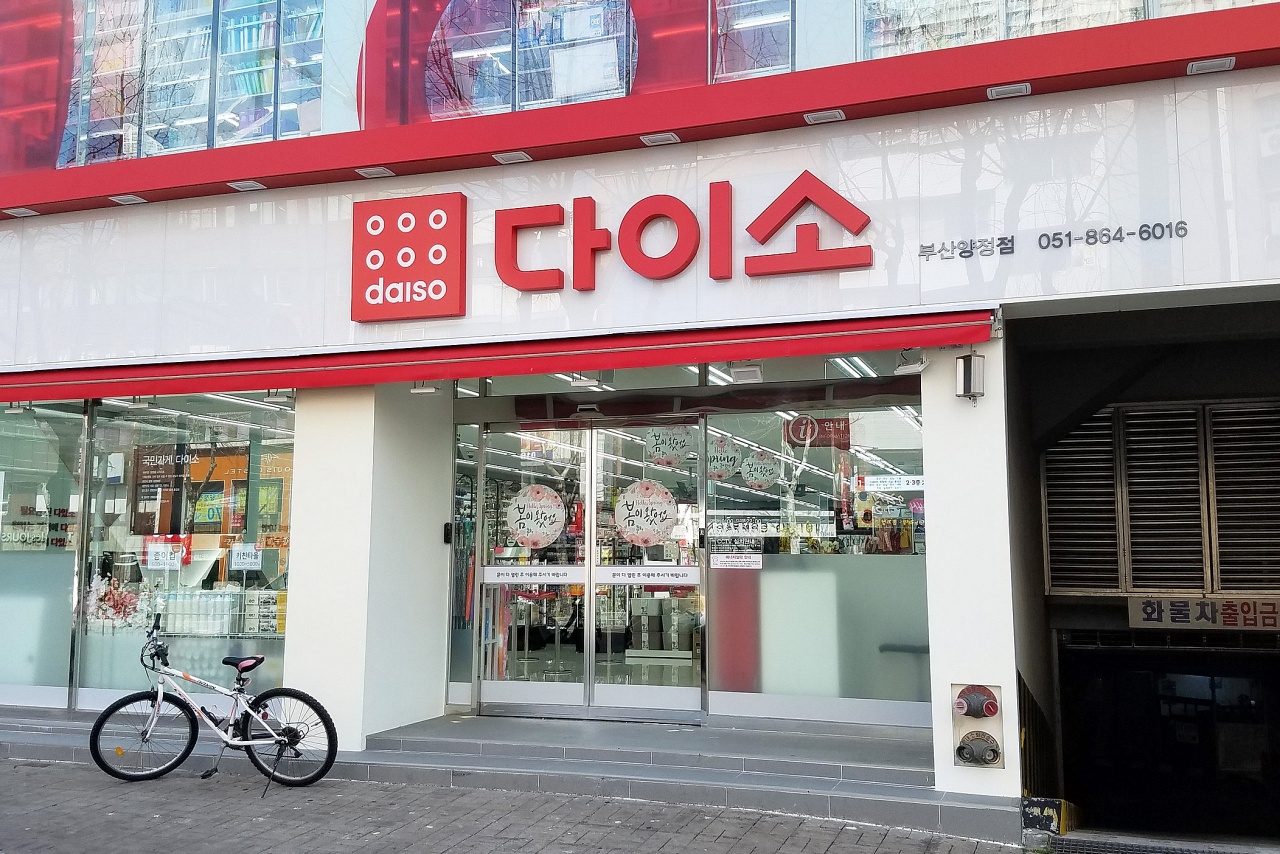Daiso, a low-priced retail chain, is popular in South Korea as it is a place where the locals can buy good quality household goods and other merchandise for just KRW 1,000 or about $0.76. The store originated in Japan, where it has become a large franchise that sells goods priced at just 100 yen.
Now, the Korean unit of Daiso recently cut its ties and is no longer associated with Japan. This makes the outlets in South Korea fully owned by Koreans.
Acquisition of Shares by a Shareholder
According to The Korea Times, the largest stakeholder of Asung Daiso, Asung HMP, purchased a 34.21% stake in Daiso Sankyo, which is Asung's Japanese equity investment partner. Market watchers said that the Korean firm paid around KRW500 billion for the buyout deal.
It was reported that Asung made the move of buying more than a quarter of the stake to get rid of and clarify the enduring misconception that Asung Daiso is a Japanese company. With the purchase of additional shares, Asung HMP’s total stake is now 84.23%, as the group’s chairman Park Jeong Boo already holds the largest share of 50.02% prior to the deal.
Korea Herald reported that Park’s two daughters hold the rest of the shares. Asung Daiso shared that this acquisition deal is a “crucial step” in transforming the retail store chain into a wholly Korean company.
Transitioning to a Fully Korean Daiso Entity
Asung Daiso said that it will restart the business with “a strong identity as a Korean company.” The firm was first established in May 1997 when Park Jeong Boo opened a store that specializes in household goods in Cheonho-dong, which sits in the eastern part of Seoul.
In 2001, Park agreed to a joint venture with Daiso Sankyo, and his store transitioned to become Daiso. The Japanese partner also made an equity investment of KRW3.8 billion at that time.
Since then, the business continued to prosper despite facing uncertainties at certain periods throughout its operations due to repeated calls to boycott Japanese products. In any case, as Daiso in Korea is now wholly owned by local operators, Asung said in a statement, “Asung has no relationship with Japan other than it has a Japanese equity investment partner. We do not pay the Japanese partner royalties or exchange human resources. Our Japanese partner does not have any involvement in the management of our company.”
Photo by: LERK/Wikimedia Commons (CC BY-SA 4.0)



 SpaceX Pushes for Early Stock Index Inclusion Ahead of Potential Record-Breaking IPO
SpaceX Pushes for Early Stock Index Inclusion Ahead of Potential Record-Breaking IPO  Sony Q3 Profit Jumps on Gaming and Image Sensors, Full-Year Outlook Raised
Sony Q3 Profit Jumps on Gaming and Image Sensors, Full-Year Outlook Raised  Missouri Judge Dismisses Lawsuit Challenging Starbucks’ Diversity and Inclusion Policies
Missouri Judge Dismisses Lawsuit Challenging Starbucks’ Diversity and Inclusion Policies  Uber Ordered to Pay $8.5 Million in Bellwether Sexual Assault Lawsuit
Uber Ordered to Pay $8.5 Million in Bellwether Sexual Assault Lawsuit  Trump Backs Nexstar–Tegna Merger Amid Shifting U.S. Media Landscape
Trump Backs Nexstar–Tegna Merger Amid Shifting U.S. Media Landscape  Tencent Shares Slide After WeChat Restricts YuanBao AI Promotional Links
Tencent Shares Slide After WeChat Restricts YuanBao AI Promotional Links  Washington Post Publisher Will Lewis Steps Down After Layoffs
Washington Post Publisher Will Lewis Steps Down After Layoffs  SpaceX Prioritizes Moon Mission Before Mars as Starship Development Accelerates
SpaceX Prioritizes Moon Mission Before Mars as Starship Development Accelerates  Amazon Stock Rebounds After Earnings as $200B Capex Plan Sparks AI Spending Debate
Amazon Stock Rebounds After Earnings as $200B Capex Plan Sparks AI Spending Debate  Once Upon a Farm Raises Nearly $198 Million in IPO, Valued at Over $724 Million
Once Upon a Farm Raises Nearly $198 Million in IPO, Valued at Over $724 Million  FDA Targets Hims & Hers Over $49 Weight-Loss Pill, Raising Legal and Safety Concerns
FDA Targets Hims & Hers Over $49 Weight-Loss Pill, Raising Legal and Safety Concerns  Ford and Geely Explore Strategic Manufacturing Partnership in Europe
Ford and Geely Explore Strategic Manufacturing Partnership in Europe  CK Hutchison Launches Arbitration After Panama Court Revokes Canal Port Licences
CK Hutchison Launches Arbitration After Panama Court Revokes Canal Port Licences  Instagram Outage Disrupts Thousands of U.S. Users
Instagram Outage Disrupts Thousands of U.S. Users  TrumpRx Website Launches to Offer Discounted Prescription Drugs for Cash-Paying Americans
TrumpRx Website Launches to Offer Discounted Prescription Drugs for Cash-Paying Americans  Nvidia CEO Jensen Huang Says AI Investment Boom Is Just Beginning as NVDA Shares Surge
Nvidia CEO Jensen Huang Says AI Investment Boom Is Just Beginning as NVDA Shares Surge 































